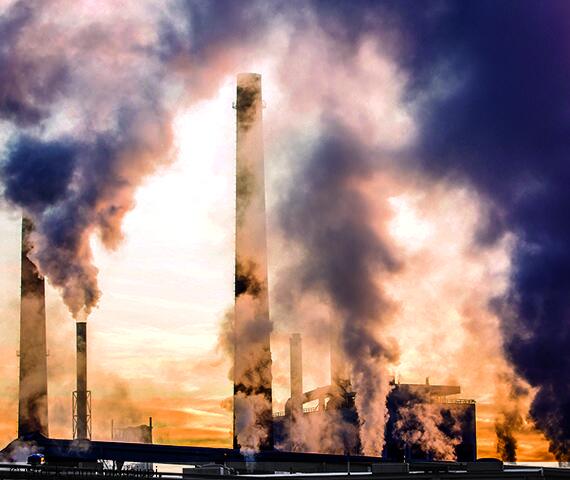KfW/ZEW CO2 Barometer 2016: Further Action Needed to Meet Climate Targets – Even After Paris
ResearchGerman companies participating in the European Emissions Trading Scheme (EU ETS) have low expectations regarding the effectiveness of the agreement adopted at the Paris climate change conference in 2015. Approximately 60 per cent of companies do not expect that the agreement will result in a sustainable reduction of global greenhouse gas emissions. Similarly, the majority of the surveyed companies do not expect major effects on their competitiveness, employment or location of production facilities resulting from the agreement. Most companies, however, do expect prices for emissions certificates to rise again after the past few months had seen a sharp decline in prices. This is the result of the KfW/ZEW CO2 Barometer 2016, an annual survey which has been jointly conducted by the KfW Banking Group and the Centre for European Economic Research (ZEW) since 2009 and which examines the impact of the EU ETS regime on the regulated companies.
Since December 2015, prices for emission certificates have been subject to strong fluctuations. After a two-year period of rather low but steady prices (EUR 8 per tonne of CO2), prices experienced a sharp drop of almost 50 per cent at the beginning of 2016. The surveyed companies suspected the reasons for this price crash to lie in the regulatory framework, i.e. due to an excessive supply of allowances, in the global decline in economic activity and in speculative transactions.
The end of June 2016 was marked by another drop in prices triggered by the Brexit referendum. As the second-largest European emitter, the United Kingdom has traditionally played a significant role in the EU ETS and repeatedly used its influence over the years to strengthen the emissions trading system, for example, by introducing a more stringent cap on emissions allowances. Even if the British emitters were to continue to participate in the trading scheme, the political influence of the UK in the EU ETS is very likely to dwindle. This leads to a decrease in the expected price level for allowances.
Carbon certificate prices too low to set an incentive for reducing carbon emissions
These developments prompted German companies regulated under the EU ETS to make considerable downward revisions to their forecasts for emissions certificate prices when compared to the 2015 survey. For December 2016, the respondents expect an average CO2 price of 6.71 €/t; for the end of 2017, they expect prices to increase to 8.31 €/t. In the long term, prices are expected to remain at a stable level, namely at approximately 25 €/t in December 2030. According to the majority of companies, however, prices need to be at least at 26 €/t of CO2 in order to set incentives to abate emissions and invest in alternative technologies (approximately).
As a consequence, incentives to reduce emission in the EU ETS are still too low. Although 76 per cent of the surveyed companies claim to have adopted measures to avoid greenhouse gas emissions, these measures were in most cases mainly implemented in order to optimize processes or to reduce raw material or energy costs. Merely 15 per cent of the companies reducing greenhouse gases claimed that emissions reduction was their main motivation for such investments.
The KfW/ZEW CO2 Barometer is a co-operation project of the KfW Banking Group and ZEW. It has been analysing the impact of the European Emissions Trading System (EU ETS) on the regulated companies in Germany since 2009. About 800 companies participate in this annual survey. On average, about 130 of them provide information about their current situations and future strategies.
For more information please contact:
Dr. Daniel Osberghaus, Phone +49(0)621/1235-205, E-mail osberghaus@zew.de
